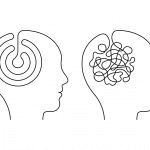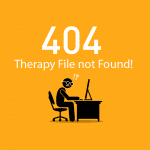Have a Flight Plan Before your Exam

Don’t Make These Mistakes!
Valuing Speed Over Efficiency
 Prioritize how quickly the FAA can decide your case, not how quickly you schedule an appointment. The FAA may make decisions in 90 days with a clean case and a compliant report. A fumbled case gets denied. Murky cases can take years to resolve. Instead of focusing on how soon you can get an appointment with your doctor, you should prioritize “How soon can I expect to hear something from the FAA?” For a straightforward, gold standard HIMS case, the pilot will receive an FAA determination in about three months. An SSRI case takes longer, even if straightforward. A below-average assessment, missing documents, a report not addressing regulations, or other common errors can result in a quick denial. Even worse, a noncompliant case may grind through the FAA for two or more years before the pilot gets a reply.
Prioritize how quickly the FAA can decide your case, not how quickly you schedule an appointment. The FAA may make decisions in 90 days with a clean case and a compliant report. A fumbled case gets denied. Murky cases can take years to resolve. Instead of focusing on how soon you can get an appointment with your doctor, you should prioritize “How soon can I expect to hear something from the FAA?” For a straightforward, gold standard HIMS case, the pilot will receive an FAA determination in about three months. An SSRI case takes longer, even if straightforward. A below-average assessment, missing documents, a report not addressing regulations, or other common errors can result in a quick denial. Even worse, a noncompliant case may grind through the FAA for two or more years before the pilot gets a reply.
Regulatory vs Clinical Medicine
 The FAA uses regulatory definitions over clinical diagnoses. Definitions in Part 67 take first position. If an issue is undefined in Part 67, then standards for pilots - not general patients - are the key. FAA determinations and DSM-5 diagnoses can oppose each other. For example, a pilot can fully meet the FAA’s criteria for Substance Dependence, while not meeting the DSM-5 criteria for a Substance Use Disorder. When federal regulation is silent to define a mental health condition, such as depression, the aviation psychiatrist must address the standards applicable for pilots, not the general population.
The FAA uses regulatory definitions over clinical diagnoses. Definitions in Part 67 take first position. If an issue is undefined in Part 67, then standards for pilots - not general patients - are the key. FAA determinations and DSM-5 diagnoses can oppose each other. For example, a pilot can fully meet the FAA’s criteria for Substance Dependence, while not meeting the DSM-5 criteria for a Substance Use Disorder. When federal regulation is silent to define a mental health condition, such as depression, the aviation psychiatrist must address the standards applicable for pilots, not the general population.
Disrupted Prognoses

Keep a stable treatment plan. Stopping care does not make your case look better. Often pilots stop antidepressants or quit counseling sessions in the mistaken belief that the absence of treatment looks better to the FAA. Instead, the pilot removed treatment tools now rendering the prognosis unknowable.
Secrets

Failing to disclose something critical will hurt your case. For example, if you deny treatment at a psychiatric hospital but your records show different, your case may have a fatal error. Answering a psychiatrist’s questions truthfully may allow the doctor to place problems into a broader context. Misleading the psychiatrist about suicide thoughts, a legal problem, or a psychiatric hospitalization (etc.) causes a credibility gap. If the psychiatrist, psychologist, AME, or FAA get a conflicted picture of your case, you cannot expect a smooth pathway to medical certification.
No HIMS AME when Required

Did the FAA require you to get a HIMS AME? For some issues, a HIMS AME is required. If the FAA recommends a HIMS AME without requiring it, that's an important clue to do it anyway. If the FAA requires a HIMS AME you must engage the specialist. Even when not mandatory, as in SSRIs, I still advise you seek a HIMS AME if your case now involves or in the past involved drug, alcohol, or mental health issues. A HIMS AME will have experience, training, and access to specialized checklists required by the FAA to look a drug, alcohol, and SSRI cases.
Incomplete Mental Health Records

The FAA's standard is that the psychiatrist review ALL treatment records. Not summaries. Notes must be in sufficient detail to analyze your treatment. A summary of treatment, whether by a letter or phone call, most of the time fails to meet the “sufficient detail” standard as described in the FAA’s specification sheet. A therapist’s summary highlights some content and excludes other information and unwittingly places the therapist as a decision maker in a public safety assessment. Copies of your counseling records have the protections in this office as when held by your therapist.
The Fine Print

Read everything from the FAA, your HIMS AME, and aviation psychiatrist carefully. Often the FAA's thinking and certification plan is placed clearly into print. If not, there are still clues in the text. Use every information advantage you can. If the FAA publishes a numbered list of mandates, the pilot has little chance for certification until you fulfill each item on the list. If your aviation psychiatrist advises you start counseling, see a psychiatrist, or start HIMS then the FAA will look for you to follow the recommendations or get a second opinion. The second opinion must also meet all standards of assessment, reporting, regulatory interpretations, and address medical standards for pilots, not the general population.
DOT vs FAA Requirements

DOT standards address workplace drug testing and eligibility for employment, while the FAA’s Part 67 defines medical standards for aviators. For a positive or refused DOT drug test, the minimal education standard prescribed after most SAP evaluations will usually fail to meet the rigorous health and safety standards for pilots.
